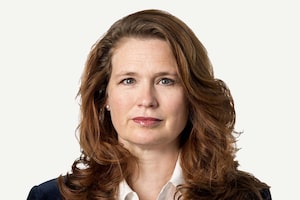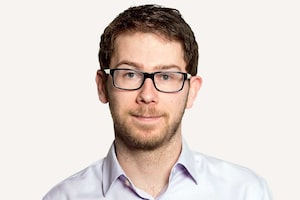Vancouver Mayor-elect Ken Sim speaks during a news conference in Vancouver, B.C., Monday, Oct. 17, 2022.DARRYL DYCK/The Canadian Press
Good morning. It’s James Keller in Calgary.
Ken Sim lost the 2018 mayoral election in Vancouver to Kennedy Stewart, a former NDP MP who ran on a progressive platform while offering a break from the city’s party system as an Independent.
Mr. Sim ran for the Non-Partisan Association, which was one of the city’s two main parties alongside former mayor Gregor Robertson’s Vision Vancouver. The result was close -- none of the three top candidates secured more than a third of the vote and Mr. Stewart won by a margin of less than 1,000 votes.
Mr. Sim returned for a rematch this year, this time with a new party called ABC Vancouver. And in contrast to the nail-biter of four years ago, it was a landslide: Mr. Sim won with about half the votes, compared with just under 30 per cent for Mr. Stewart. ABC Vancouver won seven of the 10 seats on council, giving Mr. Sim and his party a strong majority that will allow them to govern with little opposition.
The results were widely seen as a rebuke of Mr. Stewart’s first term in office and of a dysfunctional council that seemed to have no real direction and where fractures among parties could make it difficult to get things done. B.C. is one of the few places in Canada with political parties at the municipal level.
The campaign was driven in part by concerns about public safety, particularly in Vancouver’s Downtown Eastside. A string of violent incidents in the neighbourhood has grabbed headlines, and the city has struggled to deal with homeless encampments, including one that stretched along East Hastings Street and prompted an eviction order over the summer.
Mr. Sim’s platform included a promise of 100 new police officers, as well as 100 psychiatric nurses, which he said would be paired up in mobile teams that would handle mental-health calls.
Mr. Sim used his first news conference on Monday to promise cautious change, rather than a swift overhaul of the sort that happened in 2008 when Vision Vancouver swept to power in a similar landslide.
He said he didn’t plan to fire top city managers and he would wait for a full picture of the city’s finances before making decisions about budgets and tax increases. He repeated his promise to hire 100 new police officers and 100 mental-health nurses, which he described as his top priority.
Several other high-profile mayors were unseated, notably in Surrey. Mayor Doug McCallum, a former mayor who returned to politics in 2018 after a hiatus, was unseated by Councillor Brenda Locke.
While the centerpiece of Mr. McCallum’s 2018 election campaign and subsequent term as mayor was a promise to ditch the RCMP and replace it with a municipal force, Ms. Locke promised to reverse course.
The transition to a Surrey Police Service has already been approved by the provincial government and is well under way; Chief Norm Lipinski was hired almost two years ago. It’s not clear what happens next.
Across the province, sitting mayors from Cranbrook to Quesnel lost to newcomers. For example, in Langford, pro-development mayor Stewart Young was ousted after serving seven terms. He’ll be replaced by a political neophyte whose campaign headquarters was a tent trailer on his family’s forested property.
There were acclamations elsewhere, notably in Burnaby, where incumbent Mayor Mike Hurley will remain in office after no one ran against him. Mr. Hurley won his first election 2018 by unseating long-time mayor Derek Corrigan.
This is the weekly Western Canada newsletter written by B.C. Editor Wendy Cox and Alberta Bureau Chief James Keller. If you’re reading this on the web, or it was forwarded to you from someone else, you can sign up for it and all Globe newsletters here.
 Wendy Cox
Wendy Cox James Keller
James Keller